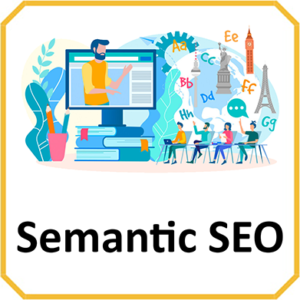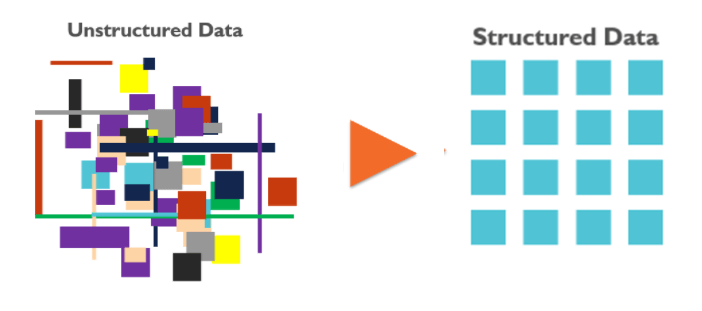SEO or search engine optimization is the most important tool to bring your website to rank higher on SERP or Search Engine Result Page. This helps in bringing in a greater number of traffic to visit your website. You can reach to your target audience faster and convert the potential customers to your brand of business if you have the right SEO keywords. SEO is a tool that helps you to understand the needs of your target audience and guides you as to how you should configure your website to get maximum traffic. SEO helps by using the sophisticated algorithm run by a vast network of websites, making up the web, to determine and select the results to display for every search query.
Semantic SEO
Semantic SEO is a phrase used by the users of SEO. Semantic SEO refers to the efforts done by search engines to understand the query. The queries are generally made in natural languages.
Semantic SEO involves the context of the searcher at the moment the searcher enters a query. It combines the present query with the previous query and produces the result.
Semantic SEO also focuses on the history of searches made previously by the searcher. It correlates this history of search and produces the result. If the Search engine fails to understand the concept of entities, you can help by associating properties, such as with people, places or events, etc.
There is a lot of confusion in a search query entered by a searcher by not giving the relevant details of his search or using vague words. It can confuse the Search Engine and make it produce a wrong result. Increased use of Voice Search has added to this problem as the searcher uses his natural language while entering the search. Semantic SEO is the development of correctly understanding the correct meaning of the user’s queries and producing the correct result.
Semantic SEO focuses on establishing digital entities, which are probably people, places, or things. This results in a better understanding of entities with their properties and qualities. The search engines are thus capable of better understanding of language and producing the correct result. Google then stores this data in its knowledge graph and produces much better results when there is a search made.
Google makes its transition from strings to things through these entities. It helps in making the web more transparent to users and the search engines by Semantic search. There is a great importance of structured data here that can give more information about the basic elements of a website.
Importance of Structured Data in Web Searches
Structured data helps the search engines index web pages. And this is done at a faster speed with optimum accuracy. This makes the job of search engines easier and helps in producing accurate search results.
Relevance of Semantic Search and SEO
The basic strategies for search engine optimization are still necessary and important tools for the search engine to find search results. These are keywords, substantive content, backlinks, and anchor texts. But Semantic search has stepped into another world and has modernized SEO. Now no exclusion of a single tactic can be pursued to exclusion of everything else.
Semantic SEO is a revolutionary concept in search engines. It focuses on the whole topic instead of looking for a single keyword. This has changed the pattern of keyword research studies. It focuses on many interconnected queries instead of focusing on a single query.
This has made Semantic SEO a premium marketing technique. It immensely improves the traffic to the website by providing more meaningful metadata. It focuses on semantically relevant content that can respond accurately to a specific search intention. Semantic SEO can create groups of content that are semantically similar to topics. It does not pay much attention to similar keywords.
Semantic SEO is different from regular SEO because it focuses on the entire content rather than based on some particular keywords. This has changed keyword research studies. It is now focussing on a group of similar queries, instead of focussing on a single query, based on a keyword.
The meaning of keywords has also changed in Semantic SEO. It is now known as semantic keywords. It now refers to the meaning and intent behind a keyword phrase that is specific. Semantic SEO focuses on the intent of the searcher when the searcher enters a query into Google for producing search results.
Thereby, Semantic SEO has turned into a very important marketing technique. It has a huge effect on the volume of traffic to a particular website. It analyses the intent of the searcher and produces results accordingly, which serves better the searcher. It can create a cluster of contents that are semantically grouped. and it is by topics, not by keywords.
You Can Also Optimize Your Content for Semantic Seo
Semantic SEO has made on-page SEO optimization more complex and difficult. Keywords are no longer important in searching a website. It does not have any effect in ranking a website content in Google in organic search. Semantic SEO can be created by focusing on all related topics in depth. You should optimize keyword clusters and improve the depth of the content. Synonyms and related terminology play a great part in Semantic SEO. Questions and answers are important here. Structured data is necessary. You need to use content optimizer tools and try to build clusters of similar topics on your website.
Semantic Search allows Google to understand the intention of the searcher behind his search. It also helps in potentially understanding the context of the search. It can then find out more relevant content to that particular query. Keywords are not that important in this process.
Google uses an algorithm called RankBrain to understand Semantic SEO. It can interpret 15 to 20 percent of search queries. Google is using it as a major part of its core algorithm. RankBrain helps by detecting patterns of search queries to determine the context and identify the user’s intention.
Semantic SEO has made regular SEO a bit outdated.
Search engine optimization is used by many business owners to help them succeed. One of the reasons why search engine optimization is effective is because it helps in the analysis of the competition. This is a method that helps in identifying the strengths and weaknesses of the business competition. This blog will discuss how search engine optimization helps in analyzing the business competition.







